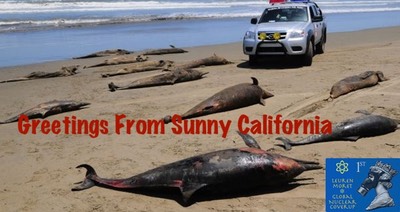Just Released: Blood Composition of Monkeys Altered Near Fukushima Site
July 29, 2014
http://thecontrail.com/forum/topic/show?id=4744723%3ATopic%3A555627
Perhaps you’ve tuned out news on Fukushima since the catastrophe happened more than three years ago, but the animals and people living near the site haven’t forgotten. Wild monkeys that reside in a forest near Fukushima are now showing alarming changes in their blood composition. This doesn’t bode well for humans who were exposed to radiation from within several hundred kilometers of the Daiichi site.
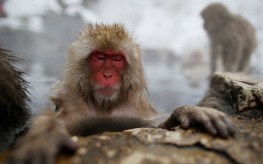
Sixty-one monkeys living within 43 miles (70 kilometers) of the Fukushima Daiichi site were researched over a year after the incidence occurred and large amounts of radioactive substances were spewed into the environment. Observing the monkey’s blood in lab tests, scientists recognized lower counts of red and white blood cells, as compared to 31 monkeys from Shimokita Peninsula in northern Japan, several thousand miles away. (Picture: Reuters / Issei Kato)
Radioactive cesium was also found in the muscles of the 61 wild monkeys gathered from the forest site. The range varied from 78 to 1778 becquerels (units of radioactivity representing decay per second) per kilogram. No cesium levels were found in the Shimokita Peninsula monkey’s blood.
Shin-ichi Hayama and colleagues just published their results this week in the journal Scientific Reports, stating that exposure to radioactive materials may have contributed to the blood changes seen in the Fukushima monkeys. They also state that low blood cell counts could be a sign of a compromised immune system , potentially causing the monkeys to be vulnerable to infectious diseases.
“The findings are consistent with what our group had found with red blood cells and hemoglobin content for children living around Chernobyl,” said Tim Mousseau, a biologist at University of South Carolina, who wasn’t involved with the study.
The new study of Fukushima monkeys indicate the Japanese plant’s meltdown could have similarly negative consequences to the Chernobyl accident of 1986.
“The fact that they are seeing a signal in monkeys living in Fukushima city means that there’s some potential direct relevance to the human population,” Mousseau told Live Science. “These monkeys are living at levels of contamination that are very similar to what many of the people are also living in.”
Juvenile monkeys in this particular study showed much higher radioactive cesium levels than older monkeys, proving that the young or infirm may be at risk more exponentially.
“Whether these effects will persist into the future, whether they increase or decrease, nobody really knows,” Mousseau said.
Abnormalities have also been observed in bird populations following the Daiichi tragedy, while radiation in fish and tuna has skyrocketed.
Read more: http://naturalsociety.com/just-released-blood-composition-monkeys-c...
⚛
⚛
⚛
Visitors to LM:GNC
Leuren Moret: Global Nuclear Coverup
- ❁ Currents
- ⚛ Radiation Omnicide 👥
- 🎥 UC, Davis, Katehi, Illuminati ✠
- 🌎✟☦ One World Religion 🎭
- ♞ Atlanticists v. Putin et al ⚪️
- ✈️ 3 NWO False Flags Connected ➷
- 🔪Ukrainian ✠ Wikileaks 👀 Interview 🎥
- 🚫 Out of Eurasia 🚫
- 💀 Jade Helm, International Implications, NWO Rollouts ⏰
- 🌿 Essential Oils, Nutrition, Frequencies & Health 🌺
- 🎯 R.F.D.E. | H.A.A.R.P. | N.L.P. ⚡️
- ⚛ Leuren Moret: Hiroshima, Nagasaki, Fukushima ⚛
- ❦ Moret & Battis: Jade Helm ❦
- 🌎 New World Order America 🇺🇸
- ⨳ Geopolitics Ukraine | E.U. Judo 🌍
- 👥 Template: Jade Helm
- ✠ America’s Domestic Pacification ✠
- ♨️ Chernobyl, Zaporozhye, Blackmail ⚛
- 💉 REBRANDING DISASTER🔪
- 👤 Eurasian Enigma Arises
- 🔴 Donetsk Nuclear Explosion ⚫️
- 🌍 21st Century Silk Road 🌏
- 🌍 Africa ☗
- ♞ Balkans, The Nameless Triangle
- 🌏 China 🌝
- 🌍 Eurasia 🔴
- 💣 Israel: Out of Erupt!
- ✠ Jesuits/Templar’s Origins & Aims
- 👺 SOROS ✠ NWO 📚 Hacked ✍
- ➴ Pyatt’s ✠ SOROS ♞ Breakfast 🍳
- Breedlove, GOOD RIDDANCE
- 🎱 Obama’s $3 Billion Eurocon 💸
- 🌍 A Psychopath’s Psychopath ✠
- 🔫 Global Hit Squad 💣
- 💀 Neo-Capitalist’s Slave Trade 💰
- 🇺🇸 Bio: Undermine Control
- ↷ Fine Evening For A Minuet ↶
- ✠ Slavery, Then & Now
- 💣 JCS Operation Northwoods
- ✠ The Three Secret Meetings
- Korea Yeonhee (연희) Nuclear Kabuki Theatre
- 🌍 Middle East 💣
- 💣 ISIL: Battered, Retreating 💀
- 🔥 Turkish Coup Attempt 💣
- ⚑ Muslim Brotherhood and ISIS ⚫️
- 🔫💰💉Daesh Terrorist Multi-Tool🔪💣💊
- 🚧 US and Turkey, NWO the Kurds 💸
- ✠ Hitler Bragged on Jesuits ✠
- 🍞 Their Daily Bread & Rubble 💣
- 🔪“Erdogan is Strengthening ISIS”💣
- 🇫🇷 Russia Reveals ISIS’ Money 💰💰
- "Raqqa's Rockefellers” ISIS Full Frontal
- ☞ Smashing Turkey’s Game❌
- 🌍 Juncker | E.U. | Direction ⤣
- 🔪 GLADIO Wolf Kills Russian Pilot ✈︎
- ✈︎ Washington’s SU-24 🎯
- 🌐 Turkey, NATO, War Crime? 🔎
- ➷ 449-Down, ISIL to Go 💣
- 🌎 North America 🔥✠
- 🇷🇺 Russia 🇷🇺
- 🇷🇺 PUTIN OVERHAULS KREMLIN 🏰
- ☛ Who Created ISIS ☚
- 🍳 Food Supply Compromised 🎱
- 🌍 Putin re Ceasefire Syria 🌐
- 👤 Cold War Re-Run 👀
- 🌐 Minsk 101 | Theatre of the Absurd 🌍
- 🌐 Geopolitical Original Sin 🌍
- ♘ Russian Troops | Turkish Border ♘
- 📚 Educating Charlie Rose 🔑
- 🌍 Lavrov's Munich Speech
- 🎱 US Embassy Media Fail 🎭
- ✠ ♛🃏 Putin’s Jar Of Spiders
- 🎱 MOSSAD’S ON THE DOORSTEP 💣
- 📄 This Document is Dynamite 📄
- ♔ The Golden Trap
- ❁ Russian Fusion-Fission
- ❁ Putin’s 7-Point Plan
- ❁ Russian Position Speech
- ✈︎ Ukraine, MH-17, Jesuits Flagged! BRICS Undermined?
- ⏰ Ukraine? 🔥 Bail Out! ✈️
- 💦👤 Psychotropic Zombification ☔️
- 💣 Odessa Trade Union Murders 🔥
- 🃏 Nothing Personal, Just Business 💰
- 💉 BioWeapons for Depopulation 💀
- ⚛ Nuclear Coverup Ukraine | Mines of Zholti Vody 💀
- 🔥 Unsustainable Ukraine 👥
- ☗ ASHES TO ASHES 💀
- 🔪Ukrainian Wikileaks 👀
- ☞ Dispatches From the Front 🔫
- 💣 The Ukrainian Failed State 🌍
- 🔑 Our Decisions Define Us🔑
- ✠ Child Abuse 💀
- 💣 Mozgovoi’s Murder 🔪
- 🎱 Yatsenyuk's Russian Threat 🔮
- ||| Prison Ukraine |||
- ✍ CyberBerkut Reports 👥
- ♨️ Crazy Arseniy’s -USED- Ukraine Fire Sale! ♨️
- ✝ AZOV CRUCIFIXION ✝
- 👤 Eyewitness Debaltsevo Cauldron 💀
- ✍ Historic Slaviansk Doctor Interviewed
- 💀 The Tragedy of Uglegorsk
- ♟ Jan. 2015 Minsk Fail 🃏
- ➷ Tochka Found, Debaltsevo Locked
- 🌍 World Facing Second Chernobyl
- ✈︎ MH-17 AND THE Jesuit Minuet
- ✈︎ MH-17, Jesuits Flagged!, Video
- 💀 Death’s Drummers
- 👤 DPR! Novorossiya Calling
- 💀 Ukraine’s Chernobyl Armor
- 🎱 Gas to Ukraine Blocked
- ❁ Global Nuclear Theatre: Donbass
- ✠ GHOSTS of the 51st BRIGADE
- ❁ Novorossiya: Strelkov Briefing
- 👤 Open Letter to President Putin
- ✈︎ MH-17 Dutch Interim Report
- 💣 Surrendering UA Murdered by Punatives
- ♟ Mutiny of the Euro-Integrators ♟
- ➹ View from Ukraine Operating Room
- ❁ Ukraine’s Violent Escalation
- ❁ Ukrainian Soldier’s Cry for Help
- ⧱ Occupied Ukraine ⧱
- ❁ US State's Nuland Directs Ukrainian Coup
- 📯 Ukraine Deputies Knew Before Maidan
- ❁ Health In 2015
- 💉 Vaccines 💀
- 🎥 Geopolitics, Jesuits & History
- 🎥 Rebranded ✠ The Jesuits ✠
- ⚛ Zaporhyze Nuclear Events & Geopolitics
- ❁ Fukushima Polar Vortex Radiation ❁
- 💀 Embrace, Enfold, Extinguish
- ✈︎ Fear of Flying . . . (1of4)
- ❁ Fukushima: Impact of Fallout On Oceans (Pt.1)
- ❁ Fukushima: Impact of Fallout On Oceans (Pt. 2)
- ❁ North America, Middle East and Fukushima
- ❁ DHS/Napolitano Berkeley Template
- ❁ Fukushima Radiation, Ecocide & Tesla Technology
- ✈︎ Flight 370 Downing
- ✈︎ MH370: The Follow-Up
- ❁ Domestic Radiation Issues
- ❁ Fukushima: Hawaii, Pacific Is. - Unsafe
- ⚛ Fukushima Reactors, Breakdown 1-6 ⚛
- 🌏 International Sites Featuring LM:GNC
- ❁ On To Mongolia 🎥
- 🎥 LKM On Fairdinkum Media 🎥
- ❁ Editorial Page
- ❁ Conversations 📬
- ❁ Waves
- ⚛ Radiation Around The Nation 🌎
- ⚛ Your Radiation #73/74, Sep 10 - 24, 2016 🌎
- ⚛ Your Radiation #71/72, Aug 27 - Sep 10, 2016 🌎
- ⚛ Your Radiation #69/70, July 30 - August 13, 2016 🌎
- ⚛ Your Radiation #67/8,--July 16-30, 2016 🌎
- ⚛ Your Radiation #65-6,--July 2-16, 2016 🌎
- ⚛ Your Radiation #64, July 2-9, 2016 🌎
- ⚛ Your Radiation #62-3, June 18 - July 2, 2016 🌎
- ⚛ Your Radiation #61, June 11-18, 2016 🌎
- ⚛ Your Radiation #60, June 4-11, 2016 🌎
- ⚛ Your Radiation #59, May 28 - June 4, 2016 🌎
- ⚛ Your Radiation #58, May 21-28, 2016 🌎
- ⚛ Your Radiation #57, May 14-21, 2016 🌎
- ⚛ Your Radiation #56, May 7-14, 2016 🌎
- ⚛ Your Radiation #55, Apr 30 - May 7, 2016 🌎
- ⚛ Your Radiation #54, Apr 23-30, 2016 🌎
- ⚛ Your Radiation #53, Apr 16-23, 2016 🌎
- ⚛ Your Radiation #52, Apr 9-16, 2016 🌎
- ⚛ Your Radiation #51, Apr 2-9, 2016 🌎
- ⚛ Your Radiation #47-50, Mar 5 - Apr 2, 2016 🌎
- ⚛ Your Radiation #46, Feb 27-Mar 5, 2016 🌎
- ⚛ Your Radiation #45, Feb 20-27, 2016 🌎
- ⚛ Your Radiation #44, Feb 13-20, 2016 🌎
- ⚛ Your Radiation #43, Feb 6-13, 2016 🌎
- ⚛ Your Radiation #42, Jan 30 - Feb 6, 2016 🌎
- ⚛ Your Radiation #41, Jan 23-30, 2016 🌎
- ⚛ Your Radiation #40, Jan 16-23, 2016 🌎
- ⚛ Your Radiation #39, Jan 9-16, 2016 🌎
- ⚛ Your Radiation #38, Jan 2-9, 2016 🌎
- ⚛ Your Radiation #37, Dec 26 - Jan 2, 2015|16 🌎
- ⚛ Your Radiation #36, Dec 19-26, 2015 🌎
- ⚛ Your Radiation #35, Dec 12-19, 2015 🌎
- ⚛ Your Radiation #34, Dec 5-12, 2015 🌎
- ⚛ Your Radiation #33, Nov 28 - Dec 5, 2015 🌎
- ⚛ Your Radiation #32, Nov 21-28, 2015 🌎
- ⚛ Your Radiation #31, Nov 14-21, 2015 🌎
- ⚛ Your Radiation #30, Nov 7-14, 2015 🌎
- ⚛ Your Radiation #29, Oct 31 - Nov 7, 2015 🌎
- ⚛ Your Radiation #28, Oct 24-31, 2015 🌎
- ⚛ Your Radiation #27, Oct 17-24, 2015 🌎
- ⚛ Your Radiation #26, Oct 10-17, 2015 🌎
- ⚛ Your Radiation #25, Oct 3-10, 2015 🌎
- ⚛ Your Radiation #24, Sep 26 - Oct 2, 2015 🌎
- ⚛ Your Radiation #23, Sep 19-26, 2015 🌎
- ⚛ Your Radiation #22, Sep 12-19, 2015 🌎
- ⚛ Your Radiation #21, Sep 5-12, 2015 🌎
- ⚛ Your Radiation #20, Aug 29 -Sep 5, 2015 🌎
- ⚛ Your Radiation #19, Aug 22-29, 2015 🌎
- ⚛ Your Radiation #18, Aug 15-22, 2015 🌎
- ⚛ Your Radiation #17, Aug 8-15, 2015 🌎
- ⚛ Your Radiation, August 1-8, 2015 🌎
- ⚛ Your Radiation, July 24-31, 2015 🌎
- ⚛ Your Radiation, June 26 - July 24, 2015 🌎
- ⚛ Your Radiation, June 19-26, 2015 🌎
- ⚛ Your Radiation, June 12-19, 2015 🌏
- ⚛ Your Radiation, June 5-12, 2015 🌎
- ⚛ Your Radiation, May 29 - June 5, 2015 🌎
- ⚛ Your Radiation, May 22-29, 2015 🌎
- ⚛ Your Radiation, May 15-22, 2015 🌎
- ⚛ Your Radiation, May 8-15, 2015 🌎
- ⚛ Your Radiation, May 2-8, 2015 🌎
- ⚛ Your Radiation, April 24 - May 1, 2015 🌎
- ⚛ Your Radiation, April 17-24, 2015 🌎
- ⚛ Your Radiation, April 9-16, 2015 🌎
- 🔥 Fire at Oak Ridge 💥
- 💥 NANOWEAPONRY 💥
- 🐄 Radioactive Cattle Teeth, Fukushima 🏭
- 📰 WikiLeaks 🔎 NSA and More 🔦
- ✨Nano ‘Hall of Mirrors’⚡️
- ⚛ 💀 ⚛ into the Hudson River 🌎
- 🚿 Flint, Metropolitan Eugenics 💀
- 🌍 Existential Threat? ☛NATO☚
- 💉 Gates, Poroshenko; Conspiracy, Government 🎯
- 💉 Gates-Poroshenko ZPG Ukraine 💀
- 💀 Paris Massacre Perpetrators 👤
- 🔪 Delgado, Mind Control ♟
- 🌎 MOST NUKED NATION ON EARTH 🌎
- 🎯 Radio Frequency Directed Energy 🎯
- ⚛ Please, Don’t Pick the Mutants 🌻
- ⨳👤⨳ Space-Based Weapons Ban
- √ Saudi OP Strategy Success
- ♨️ Gallery ♨️ Chernobyl Fire ♨️ 2015 ♨️
- 🌍 Monsanto Backdoors E.U.
- 🎉 Crimea’s 1st Anniversary Album 🎉
- 🌏 21st Century Eschalon
- 📰 International Headline Watch 🌏
- ✄ Prouty Place ✑ CUT THE BULL ✂︎
- 🌏 How To Wreck The Environment
- 🇯🇵 Plutonium Isotopes Off Japan
- 🌍 Depopulation Agenda: Europe 👤
- 🔪💉Cease Covert Depopulation Letter🔪💉
- ❁ Dutch Apologize for MH-17 Lies
- ❁ Pacific Dead from Fukushima
- ❁ Strange Fish Story
- ❁ Blood Composition of Monkeys Altered Near Fukushima
- ❁ Secret Army Bases
- ⚛ Fukushima Plutonium Effect ⚛
- ➷ RAND Demographic Military Power ➷
- ⚛ Depleted Uranium | DNA Damage ⚛
- ❁ Hidden Genocide: by Dr. Ernest Sternglass
- ❁ Space Preservation Act of 2001
- ❁ 1972 Rothschild Ball
- ❁ Unsafe Radwaste Disposal
- ♆ Fallout and Reproduction of Ocean Fish Populations
- ⚛ Radiation Around The Nation 🌎
- ❁ Lifestyle
- ❁ Archive
- ⚛ 61 Years of Omnicide ⚛
- 📻 Nanoparticle Toxicity with Leuren Moret ❦
- ❁ New Bombs and War Crimes in Fallujah
- ❁ Global Climate Change . . .
- ⚛ International Radiation Distribution ⚛
- 💀 Depleted Uranium’n’DNA 😱
- ❁ UC Regents Lose Nuke Pgm
- ❁ DU-Trojan Horse
- ❁ LM:GNC (Pt1)
- ❁ LM:GNC (Pt2)
- ❁ World Uranium Weapons Conference 2003
- ⚛ Radionuclide ReMobilization Abatement
- ❁ "America First" Transcription
- ❁ "Whale Archive" Transcription
- ⚛ ⚛ ⚛ Location, Leuren Moret: Global Nuclear Coverup ⚛ ⚛ ⚛
- ❁ Glossary
- ❁ Contact
# # #
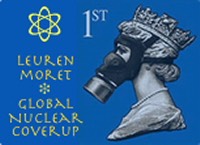


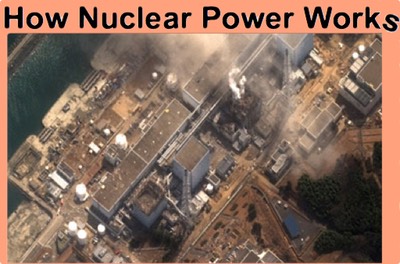


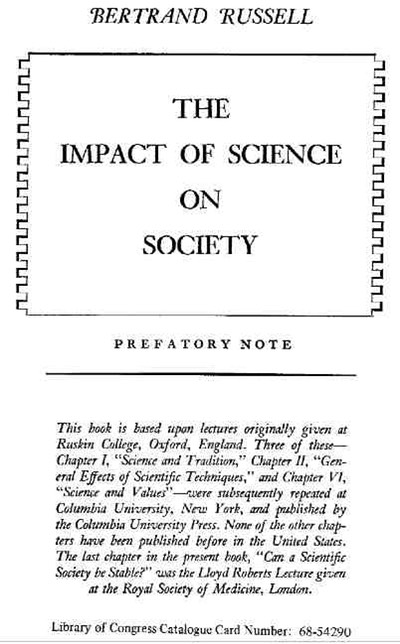

![20120724 - 7-24-2012 The More We Learn - quote from David Rockfeller -_thumb[2]](../_Media/20120724---7-24-2012-the_med_hr.jpeg)

